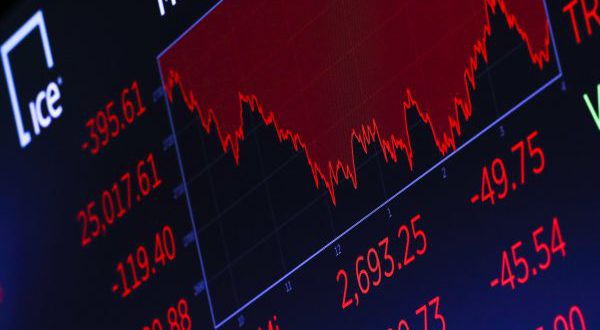By Keishia Taylor
The risks of a global economic downturn are mounting. IMF chief Christine Lagarde warned that 70% of the world economy is expected to see a slowdown in growth in the next two years, and forecast only 3.2% global growth this year, the lowest since 2009.
Economies on every continent are shrinking or narrowly escaping recession, including Germany, Italy, the UK, Mexico, Brazil, Japan and India, all in the top 15 global economies. On top of this, the US and China are embroiled in a trade war, any further escalation of which could push the global economy decisively into recession, spelling more misery in the form of poverty wages, unemployment and austerity for working-class people.
Economic “Cold War” heats up
China and the US account for 40% of the world’s GDP, and after eighteen months of tit-for-tat retaliations, stops and starts, and face-saving exercises the trade conflict has damaged the already slowing economy, posing “substantial risks” according to the World Bank. Trump declared that “trade wars are easy to win”, but beneath the bravado is a desperate battle for global domination between two rival capitalist economies, China and the US.
China’s massive economy represents a threat for US imperialism, particularly in the technology sector. Chinese tech giant Huawei, one of the largest global sellers of smartphones, caused alarm by surpassing Apple for the first time in 2018. Since then, US economic attacks on Huawei are designed to drive the company out of business, and block its coronation as world leader in 5G technology. The CEO of JP Morgan Chase said, “we’re better off dealing with [China] now, whatever that means for the economy”.
What about Ireland?
In 2018, global Foreign Direct Investment fell by 27%, and protectionist economic policy and “slowbalisation”, a partial reversal of globalisation, is increasingly prevalent. But Ireland’s very open economy means it is highly dependent on international trade, and extremely sensitive to world markets: Ireland relies on international investors for 90% of its astronomical €205 billion debt. With the double-shock of Brexit and a global economic slowdown, the outlook is quite bleak; the National Treasury Management Agency (NTMA) said the chances of a recession are 100%. Working-class people have not felt the “recovery” from the 2008-2009 recession, and the next onslaught from a crisis is approaching.
Can recession be averted?
Capitalism’s recovery toolkit is severely depleted since the 2008-2009 crash; very low or negative interest rates are already in place, and national debt has soared due to the stimulus measures and bank bailouts used to survive the last crisis. Financialisation, speculation and growing “bubbles” of fictitious capital continues unabated – $12 trillion are invested in derivatives markets. Even the IMF admits, “we are less prepared to cope with the recession than we should be – and less prepared than in the last crisis in 2008.”
Whether the capitalist class pursue “free trade” (in the hands of a hundred massive multinationals) or protectionism (in the hands of governments of competing nation states), it will be working-class people who pay the price. Secure jobs and decent living standards can only ultimately be solved by breaking with this crisis-ridden capitalist system.
Uncertainty, and potential for struggle
Increasing uncertainty and nationalism has sharpened tensions within, as well as between, these global powers, and austerity has paved the way for far-right populism and heightened national rivalries. The interests of the ruling elites are no longer represented by “respectable” liberals, but the brazen and hardline Trump, Boris Johnson and right-populist governments, as a result of the instability and profound crisis of capitalism.
But their increasingly authoritarian and reactionary measures will provoke a backlash. As we head into the next recession, the working-class are armed with the experiences of the 2008-2009 crash, a decade of austerity, and the struggles and victories of rising feminist and youth movements, so will more readily move into action. With the coming explosions there is huge potential for a real shift to the left, as we have witnessed in the US in recent years, and the building of a mass socialist movement that can end the rule of capitalism.












